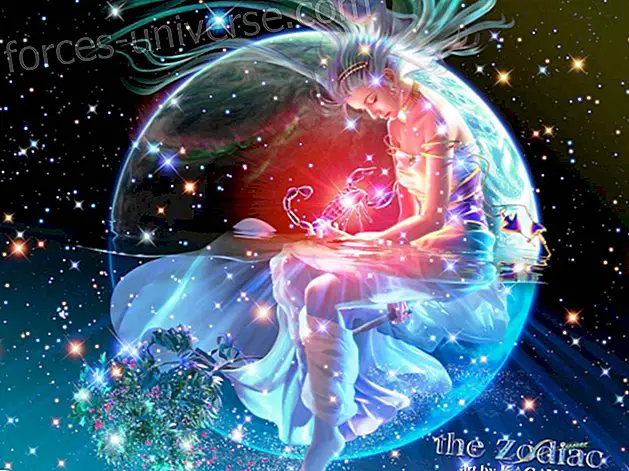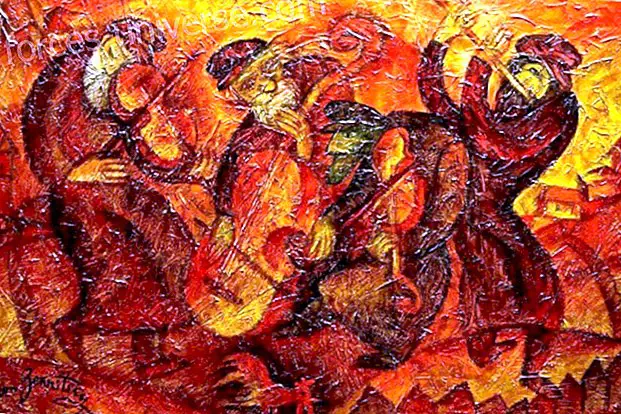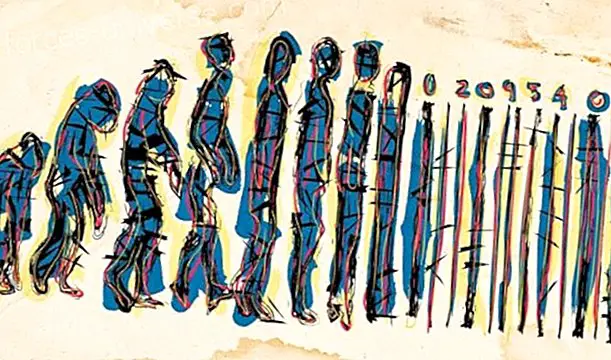
Modern writer, philosopher, scientist, social theorist, and spiritual leader, Prabhat Ranjan Sarkar has attracted followers from more than 130 countries. His books have been translated into the main languages of the world, and his unique blend of historical perspective and social criticism has been the inspiration for social fighters seeking progressive alternatives to capitalism and communism.
Since his early childhood in Bihar, India, where he was born in 1921, Prabhat Ranjan Sarkar has been attracting others for his deep love for humanity and guiding them on the path of self-realization. Adjusting the ancient science of Tantra Yoga to meet the demands of this age, he developed a scientific and rational philosophy (based on the immanence and transcendence of God) and taught a system of practical spiritual disciplines for physical, mental and spiritual development. Recognizing him as a spiritually accomplished teacher, his followers called him Shrii Shrii Anandamurtiji, which means "he who attracts others as the embodiment of happiness", or simply "Baba" (father).
Those who followed his teachings found their lives transformed by overcoming the weaknesses and negative tendencies of the mind to experience deep peace and happiness within. Inspired by their selfless example, they focused their efforts on serving society and raising the oppressed.
Ananda Marga
In 1955, while continuing to lead a normal life as a railroad officer, Prabhat Ranjan Sarkar formed the Ananda Marga organization (" Way of Happiness ") with the dual purpose of achieving spiritual progress and social change. To this end he began to train missionaries to spread his teachings of " self-realization and service to humanity " throughout India and later throughout the world. Reflecting the breadth of his universal vision, Ananda Marga subsequently became a multi-faceted organization with different branches dedicated to the elevation of humanity through education, relief, welfare, arts, ecology, intellectual rebirth., the emancipation of women, and the humanist economy.
In 1963, the ' E ducation, Al ivio and Welfare Section ' (ERAWS) was established, which runs schools, orphanages, medical units, nursing homes, free dining rooms, drug rehabilitation centers and homes without shelter for women in all the world. The ' Ananda Marga U niversal ' (AMURT) Aid Team has provided relief in fires, floods, typhoons, earthquakes and wars, and received numerous appointments from the United Nations, Red Cross and many governments.
Contributions to the fields of Humanities, Linguistics, Science and Arts

In the field of ecology and environmental awareness, Sarkar proposed the philosophy of Neo-humanism, expanding the spirit of humanism to include love for animals, plants and the inanimate. He began a global exchange program to save flora and propagate thousands of plant species, and encouraged the establishment of animal sanctuaries in various places around the world.
In the field of philology and linguistics, Prabhat Ranjan Sarkar wrote numerous volumes on the Bengal and written languages, which trace the evolution of words, cultural phrases and traditions that make up the upholstery of Indian languages today, as well as new and important ideas in Indo-European languages and other languages of the world.
In the field of science, Sarkar introduced the theory of Microvita, which has subsequently captured the interest of scientists around the world. In a series of revolutionary speeches, Sarkar struck at the heart of conventional physics and biology, pointing out that the basic building blocks of life are Microvita emanations of pure consciousness. The theory of Microvita provides a link between the worlds of perception and conception implies that the different disciplines of physics, biology and mathematics are they will merge into a science of understanding the true nature of the universe.
In the fields of music, literature and art, Sarkar urged artists to produce art for service and blessing rather than simply art for art , and gave guidelines to achieve this goal. Sarkar not only wrote long philosophical treatises, but also enriched us with children's stories, fiction, comedy and drama. His most dramatic contribution is the collection of 5018 songs known as Prabhat Samgiita (Songs of the New Dawn) that he composed from September 1982 until his death in October 1990. These beautiful songs they express the spiritual feelings and universality of the human heart. Most of the songs were written in the mother tongue of Sarkar, Bengali, and Bengali scholars have given them the highest praise for their poetic and symbolic expression.
Socio-economic justice
For the collective well-being of the entire universe, Sarkar proposed the Prout (the Theory of Progressive Use), which represents the maximum use and rational distribution of all the resources and potentialities of the world - physical, mental, and spiritual - and the creation of a new order, the humanist social order of harmony and justice for all based on Neo-humanism, the principle of love for all beings in the universe.
His demands for social justice, and his inflexible moral stance against corruption and exploitation, led to the opposition of certain vested interests that resulted in the persecution of Ananda Marga and her own arrest in 1971 on false charges. During his seven-year imprisonment, he survived an attempted poisoning by government officials and fasted on a liquid diet for more than five years as a protest. He was ultimately acquitted of all charges by the high court, and was finally released from prison in 1978. From then until his physical departure in 1990, he continued to guide the rapid expansion of Ananda Marga worldwide.
Lighthouse of Light of the Future

Prabhat Ranjan Sarkar wrote more than 100 books on topics as diverse as mysticism, cosmology, sociology, history, education, yoga, medicine, ethics, psychology, humanities, linguistics, economics, Ecology, agriculture, music and literature. He delivered several thousand speeches and composed more than 5, 000 mystical songs. He taught the science of meditation for self-realization directly and indirectly to millions of people. But most importantly, through his personal example, deep philosophy, systematic spiritual practices and long-term service projects, he has been - and remains so to this day - the only inspiring impulse for the universal mission of Ananda Marga .
SOURCE: http://www.anandamarga.org/about/founder/






